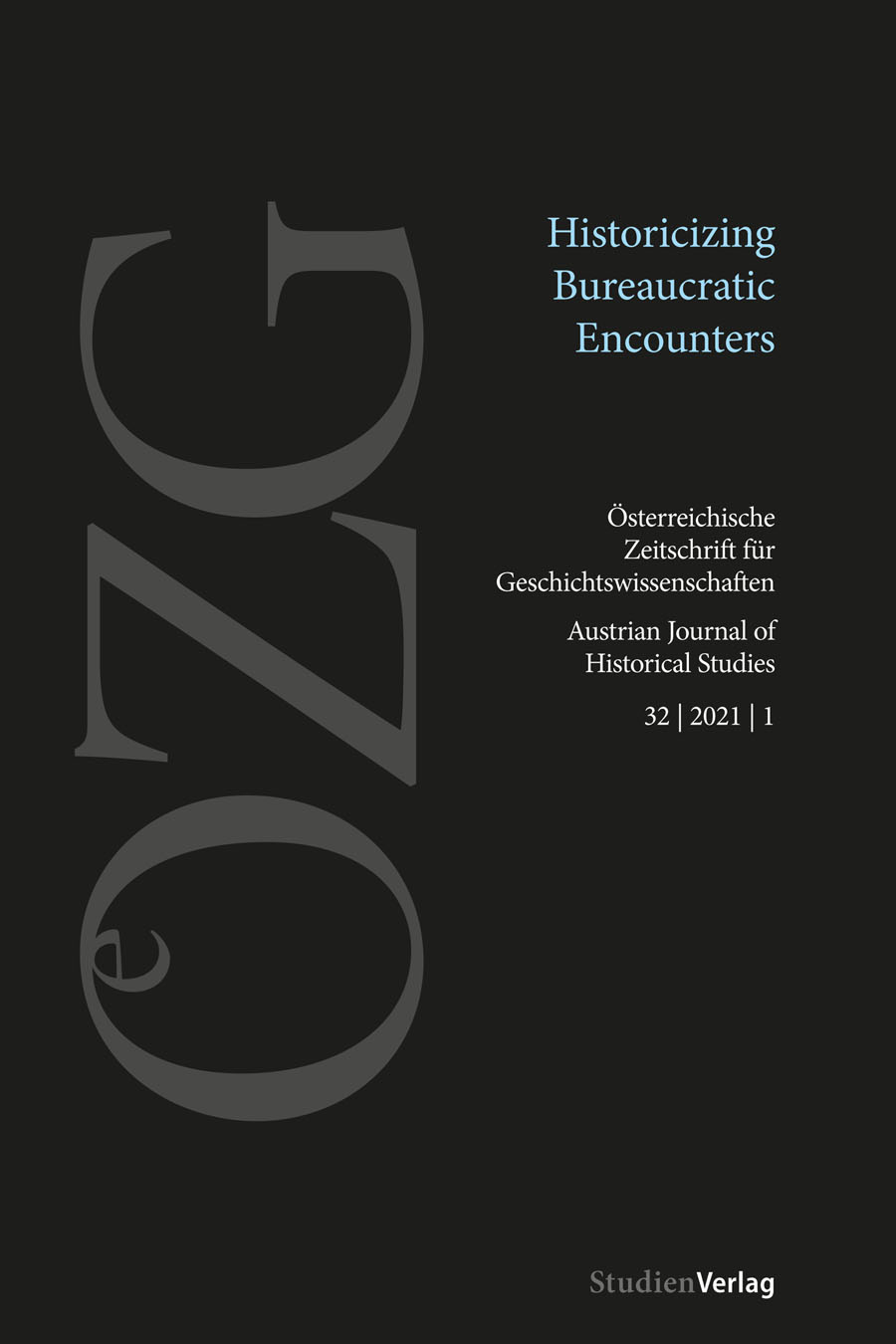Unstimmigkeiten und Widersprüche in bürokratischen Interaktionen
Street-level bureaucracy im Österreich der 1920er- und 1930er-Jahre
DOI:
https://doi.org/10.25365/oezg-2021-32-1-2Schlagworte:
street-level bureaucracy, interactions, personal data, police work and criminal justice, legibility and illegibility, identificationAbstract
Historians who use administrative records for their research frequently encounter variations, inconsistencies and contradictions in personal data. Th ese often impede linking records to a certain person (or what appears to be a person in public administration). This may not come as a surprise since administrative work should, in principle, follow rules, it should be precise, consistent, disciplined and reliable – as Weber put it in his ideal type. Yet, like any other practice it also goes along with arbitrary or involuntary deviations, it is based on improvisation and discretion, it includes pragmatism. Also, administrative work deals with clients who can provoke administrative processes, provide and coproduce information. They follow their own agendas in ways that are based on their experiences and expectations, and seem appropriate and promising to them. Nevertheless, unlike knowledge, concepts, technologies, tools of public administration, inconsistencies and contradictions in bureaucratic interactions are rarely made a subject of historiographical research. This paper builds on a systematic comparison of records of street-level bureaucracy such as criminal justice and trade administration. It addresses the terms and conditions in which inconsistencies and contradictions in personal data are produced, addressed, handled, used and sometimes ignored by the involved parties.
Downloads
Veröffentlicht
Zitationsvorschlag
Ausgabe
Rubrik
Lizenz
Copyright (c) 2021 Sigrid Wadauer

Dieses Werk steht unter der Lizenz Creative Commons Namensnennung 4.0 International.


